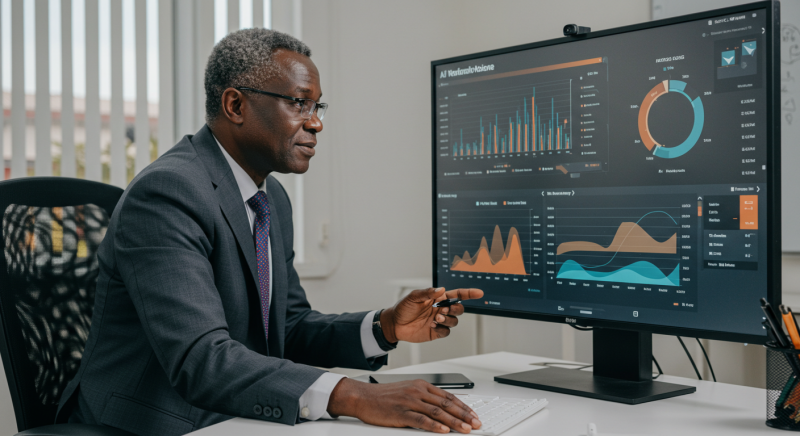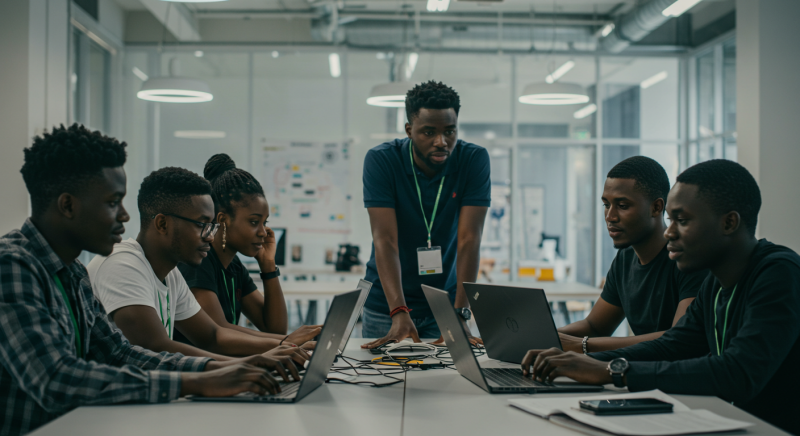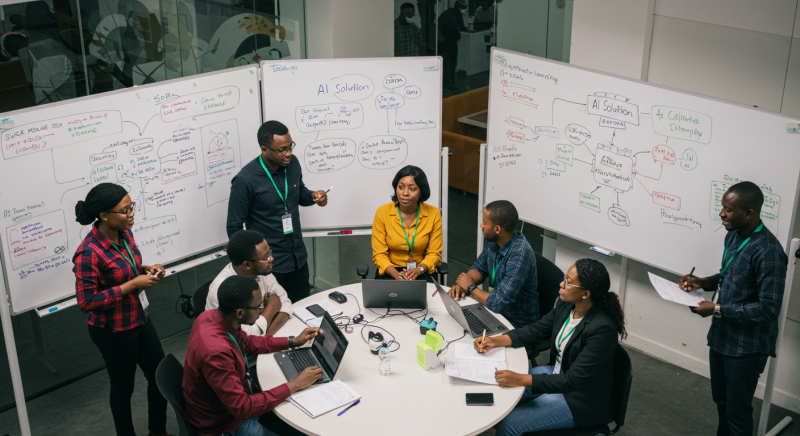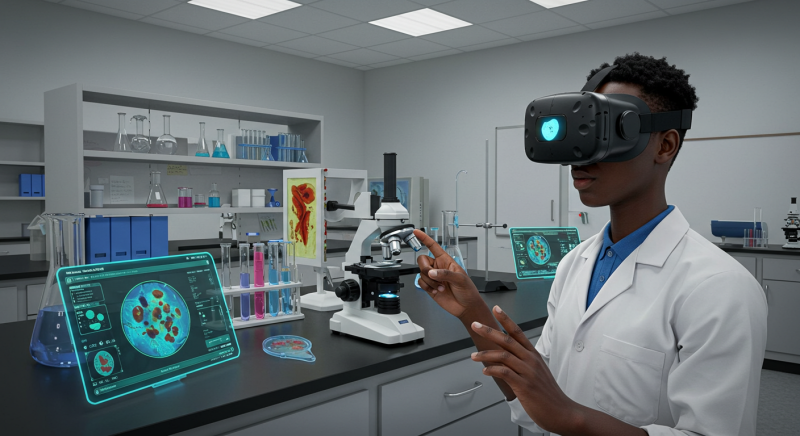“What if every Nigerian student could access personalized learning tools, and teachers had AI assistants to reduce administrative burdens? How might artificial intelligence bridge educational gaps in Nigeria?”

Key Takeaways
- AI can address Nigeria’s teacher shortage by automating administrative tasks and offering virtual tutoring.
- Adaptive learning platforms can personalize education for students in underserved regions.
- Language translation AI tools can enhance learning in local languages like Yoruba, Igbo, and Hausa.
- Limited internet access and electricity remain critical barriers to AI adoption.
- Successful AI initiatives, like uLesson, demonstrate scalable solutions for Nigerian classrooms.
The Current State of Education in Nigeria
Nigeria’s education system faces systemic challenges: 20 million children are out of school (UNICEF, 2022), and the teacher-student ratio in public schools averages 1:55 (NERDC, 2023). Overcrowded classrooms, outdated curricula, and insufficient funding hinder quality education. However, with 40% internet penetration (NCC, 2023) and a burgeoning tech-savvy youth population, AI presents unprecedented opportunities to democratize learning. For instance, Lagos-based startup uLesson uses AI-driven apps to deliver curriculum-aligned content to 2 million students, showcasing localized innovation.
Applications of AI in Nigerian Education
1. Personalized Learning Platforms
AI-powered platforms like Century Tech analyze student performance to tailor lessons. In Nigeria, where 60% of students lack foundational literacy (World Bank, 2022), adaptive tools could identify gaps and recommend exercises. Imagine a student in Kano struggling with algebra—AI algorithms adjust difficulty levels and provide visual aids, improving engagement.
2. Automated Administrative Tasks
Teachers spend 30% of their time grading and managing records (Brookings, 2021). AI chatbots like Zoho Desk can automate attendance tracking, while tools like Gradescope streamline grading. This efficiency allows educators to focus on interactive teaching.
3. Language Translation and Localization
With 500+ local languages, AI translation tools like Google Translate and RobiNLP (developed at the University of Ibadan) can convert English textbooks to Hausa or Yoruba, fostering inclusivity. For example, a 2023 pilot in Ondo State saw test scores rise by 25% when STEM materials were localized.
4. Virtual Classrooms and Remote Learning
During COVID-19, platforms like Zoom and Google Classroom bridged learning gaps. AI-enhanced platforms now offer real-time feedback; Socratic by Google answers student queries via voice search, critical for regions with limited teachers.

Challenges to AI Adoption
1. Infrastructure Deficits
Only 22% of rural households have electricity (World Bank, 2023), and 4G coverage is sparse in northern Nigeria. Without reliable power and internet, AI tools remain inaccessible.
2. Teacher Training and Resistance
A 2023 survey by Education International found 68% of Nigerian teachers lack AI literacy. Initiatives like NITDA’s AI Training Programs aim to upskill educators, but scalability is slow.
3. Data Privacy Concerns
AI systems require student data, raising fears of misuse. Nigeria’s NDPA (2023) mandates data protection, but enforcement is weak.
Case Studies: AI Success Stories in Nigeria
- uLesson: This Abuja-based app uses AI to curate interactive lessons, reaching 2 million users. Its algorithm adapts to learning speeds, reducing dropout rates by 15% (TechCabal, 2023).
- AIAfrica Initiative: Partnering with UNICEF, this project deployed solar-powered AI hubs in 50 rural schools, improving digital literacy by 40%.
The Future of AI in Nigerian Education
By 2030, AI could add $15 billion to Nigeria’s economy (PwC, 2023). Strategic investments in infrastructure, policy, and teacher training are vital. The government’s National AI Strategy (2024) aims to integrate AI into tertiary education, while startups are piloting voice-enabled apps for illiterate adults.

Conclusion
Artificial intelligence holds transformative potential for Nigeria’s education sector, offering scalable solutions to teacher shortages, language barriers, and inequities. However, success hinges on overcoming infrastructural hurdles and fostering collaboration between policymakers, educators, and tech innovators. As Adeola, a Lagos teacher, notes, “AI won’t replace teachers, but it can make us more effective.” By prioritizing inclusivity and sustainability, Nigeria can harness AI to empower its next generation.
Sources
- UNICEF Nigeria: https://www.unicef.org/nigeria
- National Commissioner for Colleges of Education (NCCE): https://ncce.edu.ng
- Nigerian Communications Commission (NCC): https://ncc.gov.ng
- uLesson Case Study: TechCabal
